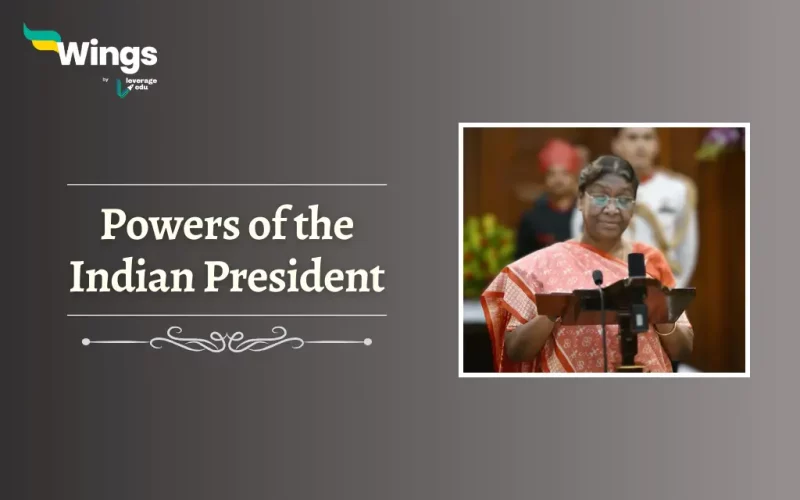The powers of Indian President have a variety of control over the diplomatic, legislative, military, judicial, financial, appointment, and emergency-related issues of the country. Furthermore, the Indian President is not only the First Citizen of the country but also the Supreme Commander of the Armed Forces in India. In this blog, we have covered the powers of the Indian President given by our Indian Constitution.
Table of Contents [show]
Emergency Powers of Indian President
According to Articles 352, 356, and 360 of the Indian Constitution, the President of India holds the power to proclaim an Emergency at the National, State, and Financial levels.
- Earlier, Indian citizens faced National emergencies in 1962 (the India-China war), 1971 (the India-Pak war), and 1975 (Declared by Indira Gandhi).
Also Read: What is the Difference between National Emergency and President Rule?
Executive Powers
Additionally, making new rules to govern this nation is the work of the Indian Government.
- The President signs the final bill, and then it becomes law for the Indian people.
- Moreover, the President holds the power to distribute tasks among the Cabinet Ministers and ask for the report.
- The appointment of the Prime Minister, Cabinet ministers, Attorney General, Chief Election Commissioner, Chairman of the Union Public Service Commission, and State governors comes under the Executive power of the Indian President.

Must Read: Who is The First Woman President of India?
Financial Powers of the Indian President
Any money bill or financial bill can be presented in the Parliament of India only after the recommendation of the Indian President. In addition, they make a finance commission to distribute the taxes between the central and State governments.
Judicial Powers of Indian President
As mentioned earlier, the President of India appoints the Attorney General of India (a Legal adviser of the GOI) and Chief Justice of India. Not only this, but according to the Judicial power of the Indian president, they can remit, respite, commute, and deprive any sentence of any Court except the military court.
Also Read: Who was The First Woman Governor of an Indian State?
Diplomatic Powers
The Indian government is part of many international agreements and treaties. All these agreements are signed by the High Commissioners and diplomats on behalf of the Indian President. Moreover, they also represent the country on international platforms.
Also Read: How is the President of India Elected?
Military Powers of Indian President
It is known to all that the President of India is the Supreme Commander of the Indian Armed Forces. Therefore, the position of the Indian President can declare war and peace with the approval of the Indian Parliament.

Legislative Power
Under the legislative power of the Indian President, several authorities have been given to the supreme post of the country. The Indian President can appoint 12 members of the Rajya Sabha and propose two Anglo-Indian members for the Lok Sabha. Apart from this, there are some other powers mentioned below:
- They can dissolve the Lok Sabha.
- A President’s signature is needed for a bill passed by Parliament to become law.
Related Blogs
We hope you got information about the powers of the Indian president. Moreover, you may even read more blogs and empower yourself with knowledge regarding Civics and Polity!
 One app for all your study abroad needs
One app for all your study abroad needs















 45,000+ students trusted us with their dreams. Take the first step today!
45,000+ students trusted us with their dreams. Take the first step today!
